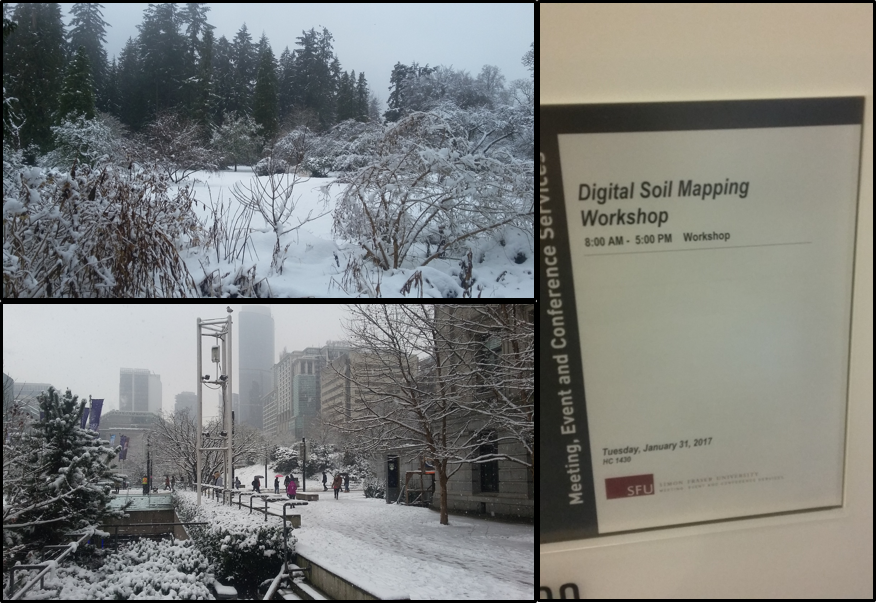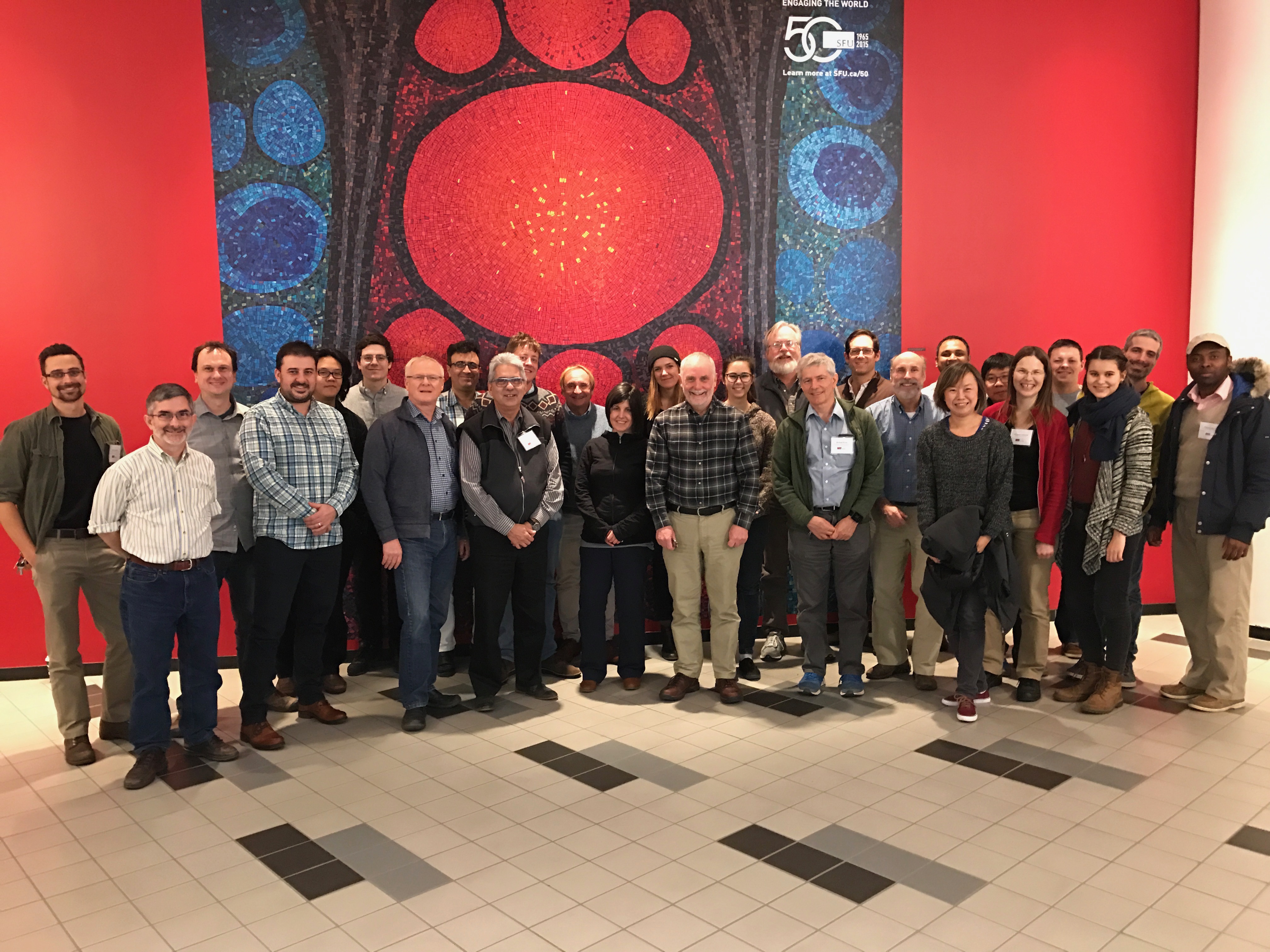Between January 24-27, 2017 the Sydney Soil Schools team were situated in Vancouver, Canada providing an intensive hands on workshop in digital soil mapping. The team consisted of Prof. Alex McBratney, Prof. Budiman Minansy and Dr. Brendan Malone. They were invited by the Canadian Government whom recently have embarked on a national project of the digital mapping the countries’ soil resource, and with a particular interest in mapping soil carbon stocks.

Participants of the workshop included scientists from Agri-Food Canada in addition to scientists from each of the provincial governments of Canada. Other participants included researchers and students (undergraduate and post graduate) from the universities: University of British Columbia, Simon Fraser University, University of New Brunswick, and the University of Saskatchewan. In total 28 bright and motivated people came for 4 days of all things digital soil mapping.

The course included a short lecture series about the fundamentals of digital soil mapping, and common methods and practices of digital soil mapping. A lecture describing the global efforts of creating a digital soil map of the world (under the auspices of the GlobalSoilMap project) was of particular keen interest to the Canadian participants. More importantly, the course covered a curriculum of learning that is necessary to understand how to do digital soil mapping. The course materials were recently published in the book, Using R for Digital Soil Mapping which was authored by the Sydney Soils School team. These course materials cover the very basics of programmatic scripting, to GIS applications, then to the more complex materials about the data science that underpins the production digital soil maps and their associated uncertainties, among other interesting digital soil related topics.

In all, the 4 day training program and jam packed with learning and importantly, heaps of discussion. From feedback, the course was hugely successful that we believe will provide the necessary starting point for Canada to achieve their aspirational goal of developing a digital soil information system for the country. Despite the cool and sometimes snowing weather conditions, our Canadian hosts were wonderfully warm and keen to learn what the Sydney Soil School had to share.